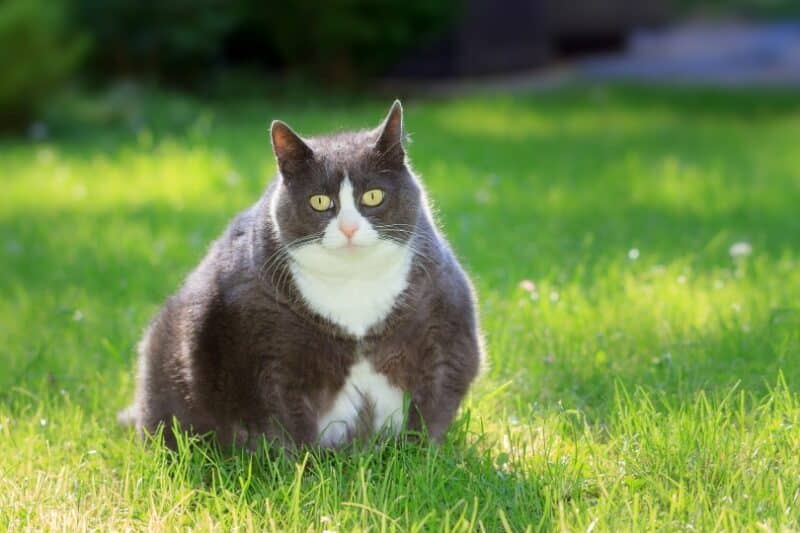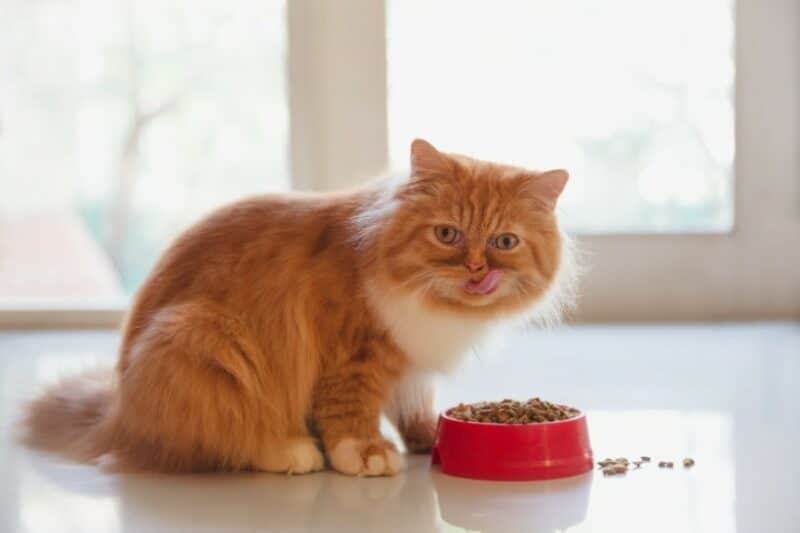Blueberry muffins may seem like a healthy snack because of the superfood berries, but they’re not great for you or your cat. While cats can eat blueberries in small quantities, eating them in a concoction of fat, sugar, and other potentially toxic ingredients isn’t a safe or healthy choice.
Are Blueberry Muffins Safe and Healthy for Cats?
Blueberry muffins are not necessarily poisonous, but they’re not a safe or healthy choice for your cat. The baked treats are often eaten at breakfast or brunch, but they have more in common with a dessert than nutritious grains like oatmeal. Most blueberry muffins are loaded with fats like butter or oil, sugars, and other ingredients that may harm cats.

Carbohydrates
Cats need meat to survive and get most of their nutrients from animal sources. They can eat a minimal amount of carbohydrates 1, which are supplied by a complete and balanced commercial cat diet. However, high carbohydrate diets can lead to conditions like diabetes and obesity, which can make your cat susceptible to heart disease, joint problems, and certain types of cancer.
Blueberry muffins are baked goods with flour and sugar and a high carbohydrate count. Even “healthy” blueberry muffins that use coconut or oat flour are still higher in carbohydrates than a cat should have.
High Fat Content
Blueberry muffins also have a lot of fat in the form of butter or cooking oil. Cats need fat in their diets, but they get what they need from their commercial diet. Too much fat can lead to obesity and diarrhea.

Additional Ingredients
Some blueberry muffins aren’t strictly composed of blueberries, either. They can contain other ingredients that can be toxic to cats, such as raisins, currants, or chocolate.
If your cat manages to eat a small piece of your blueberry muffin, it’s probably not a cause for alarm; just watch for adverse effects and contact your vet if needed. However, feeding blueberry muffins intentionally and regularly can cause problems.
Can Cats Have Blueberries?
Cats can get carbohydrates, vitamins, and minerals from blueberries, but that doesn’t mean they have the same health benefits as they do for humans. While blueberries are among the healthiest snacks for us, they’re not a natural part of a cat’s diet.
Cats subsist on a primarily carnivorous diet, so their bodies are better equipped to digest animal proteins. If you want to give your cat blueberries, it’s safe to offer two or three blueberries at one time. Remember that 90% of a cat’s diet should consist of balanced cat food, so the additional treats you offer shouldn’t make up more than 10%.
Blueberries are also high in sugar, which can cause a cat’s blood sugar level to spike and may lead to conditions like diabetes. Also, the sugar tastes good to us, but cats don’t have taste buds to enjoy sweets. In fact, they can’t even taste them.

Conclusion
Blueberry muffins aren’t a healthy or safe treat for your cat. Though a small taste probably won’t hurt your cat, serving blueberry muffins often can cause diabetes, obesity, and other adverse effects. It’s best to stick to commercial cat treats. They’re not just healthier for your cat, but since your cat can’t taste sweets, they’re more palatable to them.
Featured Image Credit: Charles Brutlag, Shutterstock












